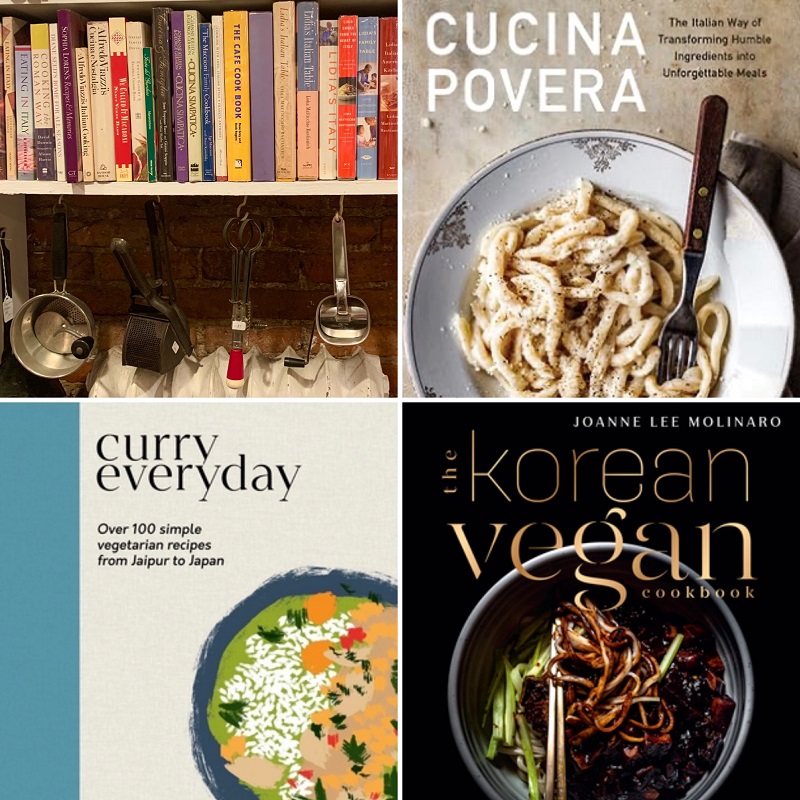Read, Learn, Teach: Books to Help Educate and Dismantle Racism
Read, Learn, Teach: Books to Help Educate and Dismantle Racism
I want to start this post off by stating that I am a white woman and am still continuing to learn about the issues I’ll be discussing here. Like many of us, I am shocked and appalled not only by recent events but by the systemic prejudice and racism that inherently exists in our criminal justice and police systems. The more news I consume through formal news outlets and social media, the more I realize that I still, and always will, have much to learn.
Over the past few days, I found myself looking for a way to contribute. Many people choose to donate to a variety of causes. Many people choose to be physically present at local protests. When thinking about what I might have to offer, I immediately thought of books. My friends regularly ask me for recommendations and I am constantly reading. So I found myself working late into the night compiling a spreadsheet of nearly 100 titles that address race and racism in some way; books to help educate and dismantle racism. Some of these novels are non-fiction informational texts about historical and current systemic racism. Many of the titles are young adult novels that either directly address race and racism or have Black protagonists. So if you find yourself feeling helpless, check out one of the books listed here or another title from my list, which of course is by no means comprehensive.
1. So You Want To Talk About Race by Ijeoma Oluo (248 pages)
Ijeoma Oluo is the Editor at Large of The Establishment and has spent much of her career writing about issues of race. This novel deals specifically with both why conversations about race are necessary and how to have them in a respectful and productive manner. The book is written specifically for people (like me) who cannot understand the experiences of living as a person of colour but are looking for ways to educate themselves. The book is straightforward and is broken into several subsections that discuss issues such as privilege, police brutality, microaggressions, and intersectionality.
Why You Should Read It
I started this (audio)book at work today and found myself totally engrossed. Many times throughout the day my co-workers heard me commenting out loud to what I was hearing. While many of the terms and concepts Oluo discusses in her book are not new to me, I was still startled and often disgusted to hear many of her anecdotal experiences. This novel offers information that is easy to understand and strategies for discussing issues of race both with those who are open to learning as well as how to address a situation in which someone is being racist.
2. White Fragility: Why It’s So Hard For White People To Talk About Race by Robin DiAngelo (154 pages)

Many people, especially white people, are afraid to start or even participate in conversations about race due to fear. Some people fear having their ideas challenged while others fear that their lack of knowledge will ultimately lead the conversation to a negative place. Robin DiAngelo discusses the many sources of that fear and how a lack of discussion by white people actually works to exacerbate institutionalized racism. DiAngelo also offers strategies to help readers engage in more meaningful and effective conversations in order to help create systemic change.
Why You Should Read It
As a white person myself, I often feel ill-equipped to have and especially start conversations about race. What we should all work to avoid, however, is letting our own discomfort get in the way of real conversation and productive action. Any discomfort I may feel during a conversation about race pales in comparison to the effects of experiencing racism first hand. DiAngelo’s style is frank but she provides effective strategies for having difficult conversations.
3. Stamped From The Beginning: The Definitive History of Racist Ideas in America by Ibram X. Kendi (592 pages) and Stamped: Racism, Antiracism, and You by Jason Reynolds and Ibram X. Kendi (294 pages)
While Americans would like to believe that they live in a post-racial and “colourblind” world, this is obviously not the case. Kendi crafts a well-paced chronicle of systemic racism in the United States that dates back to before the official birth of this nation. Kendi describes how many leaders throughout history and across areas of influence have inadvertently worked to establish and maintain racism in the United States.
Reynolds provides what he refers to as a “remix” on Kendi’s text making the information incredibly accessible to younger readers. Known primarily for his novels depicting issues of racism and police brutality, Reynolds provides information and strategies to younger readers in hopes that they can make positive changes in their lives and communities earlier.
Why You Should Read Them
As a voracious reader myself, I found Kendi’s work to be not only incredibly informative but also difficult to put down. I’m not typically a non-fiction reader, but Kendi’s style is engrossing. As a high school English teacher, I can’t wait to get Reynolds’s text into my students’ hands. While both texts provide similar information, Kendi’s work is better suited for a more mature reader while Reynolds provides the same crucial information in a way that is easier to digest for younger readers. Ultimately, both books convey the same message but are designed for different audiences.
4. Dear Martin by Nic Stone (210 pages)
Justyce McAllister, getting ready for his future at an Ivy League school, has worked diligently to succeed. His hard work and careful control of his behaviour are not enough to keep him from witnessing something horrific and subsequently being arrested. Justyce feels completely lost knowing that even though he was the victim in this situation, he’s being treated like the villain. In an attempt to work through his overwhelming feelings, Justyce begins a journal in which he writes letters to Martin Luther King, Jr. hoping to find some solace.

Why You Should Read It
This novel is captivating for a number of reasons. First, Justyce is authentically written and incredibly complex. Not only do we get to really see into his emotions but we can really see him struggle as he makes decisions. This text is also very accessible; I use this title (along with others) in my American Literature course each year and my students often finish ahead of schedule. While I cannot personally understand Justyce’s situation, the inherent racism of the police department, both overt and subconscious, are made quite clear.
5. Between the World and Me by Ta-Nehisi Coates (152 pages)
Ta-Nehisi Coates is an author and journalist who writes primarily about social issues related to race. Between the World and Me is a unique blend of a non-fiction informational text and a memoir. Coates writes not only about some of the most complex issues in American history that contribute to racism but also about his very real fears for his son growing up in a world that actively works against young men of colour. Because the book is essentially a letter written to his son, the information is both prescient and accessible to readers who have just started to learn more about race and racism.
Why You Should Read It
This book fills a gap often left in between genres. On the one hand, Coates provides historical and current information explaining the foundations and perpetuation of racism. This book also provides a more personal tone that we typically see in fiction novels. The result is a work that is both critically informative as well as genuinely touching.
A Long Way To Go
As I mentioned before, I still have a lot to learn. Not only am I white myself, but I also live and work in a community that is predominately white and I am therefore not often exposed to in-person opportunities to discuss and learn about race and racism. I do, thankfully, have nearly endless resources available to me. So if you, like me, are looking for a way to contribute, pick up one of these titles, preferably from a Black-owned bookstore, and start learning.
If you’re looking for more titles, I compiled a list including a variety of genres of books that help educate and dismantle racism. This list also includes links to synopses for each title. My list is obviously not comprehensive but please take a minute to read some summaries and select titles to add to your own To Be Read pile. Also, please share the list with anyone you know looking for resources.
Further titles on books to help educate and dismantle racism can be found in our Brookstore. Check them out here.

Rachel Gomes is a 30-something high school English teacher who lives with her high school sweetheart-turned-husband and their son. Rachel is a voracious reader who loves to learn and has her doctorate in Curriculum and Instruction. She’s happiest listening to podcasts and talking to friends about the latest news in nerd culture.
Favourite book: Don’t make me choose between A Song of Ice and Fire and Harry Potter
Favourite brunch spot: The Farmer’s Table







